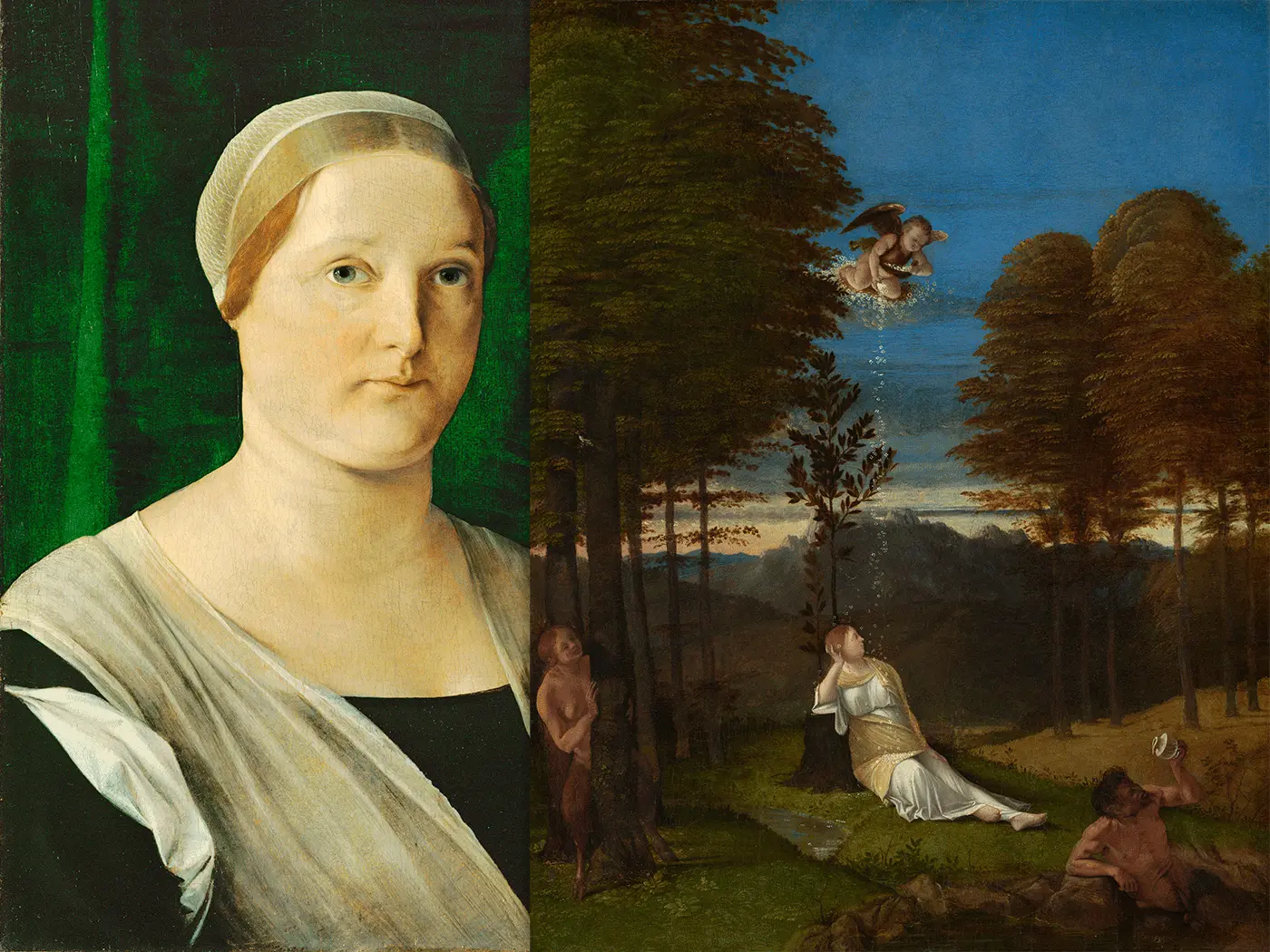New Research
U.S. Measles Cases Are Rising in 2024, CDC Warns
Health officials urge vaccination against the highly contagious virus, which has caused 121 infections in the country this year
Meteorites Are Becoming Harder to Find as They Sink Into Antarctica's Melting Ice
The disappearing space rocks are burying valuable clues into the history and composition of our solar system, according to a new study
Did Ancient South Americans Keep Foxes as Pets?
At a cemetery in Argentina, a 1,500-year-old fox buried alongside humans suggests a "close relationship" between the species, researchers say
Mathematician Who Shed Light on Randomness in Algorithms Wins Top Prize in Computing
Avi Wigderson earned the 2023 Turing Award for wide-ranging work in theoretical computer science
Why Are Some People Left-Handed? Scientists Identify Rare Genetic Variants That May Be Linked to the Trait
The variants are present in fewer than 1 percent of people, but they were 2.7 times more likely to appear in lefties than in righties
Medieval English Coins Were Made With Melted Byzantine Silver
Researchers have solved the mystery of the silver coin boom that took place around 660 C.E.
Why Do We Want to Squish and Squeeze Things That Are Cute? Science Has the Answer
The response dubbed “cute aggression” by researchers is the brain’s attempt to self-regulate when confronted with intense emotion
A Secretive Experiment Released Salt Crystals Over San Francisco Bay—Could It Help Curb Warming?
The technology could make clouds reflect more sunlight, cooling the Earth below. But even the scientists leading the study say letting go of fossil fuels is a much-preferred response to climate change
80 Percent of Global CO2 Emissions Come From Just 57 Companies, Report Shows
Many of these companies increased their fossil fuel production after the Paris Agreement was signed in 2016
Vikings May Have Used Body Modification as a 'Sign of Identification'
A recent study analyzes Scandinavian examples of filed teeth and elongated skulls dating to the Viking Age
Dark Energy Could Be Evolving Over Time, Raising Questions About the Nature of the Cosmos
The largest 3D map of the universe ever made hints that dark energy might not be a constant, though the findings must be backed up with more data
Bad Sleep Can Make You Feel Years Older Than You Really Are, Study Suggests
After just two nights of short sleep, a person’s “subjective age,” or how old they feel, can spike by more than four years
Is This Stingray-Shaped Rock the Oldest Known Animal Art?
While they urge caution, researchers think an artist may have traced a stingray in the sand some 130,000 years ago
How Do Animals React to a Total Solar Eclipse? Scientists Document Strange and Surprising Behaviors
Nature enthusiasts work with researchers to figure out how creatures respond to the celestial phenomenon
Why Were So Many Renaissance Portraits Multisided?
A new exhibition at the Met is the first to examine the tradition of covered 15th- and 16th-century portraits, which were designed to be interactive and often portable
Can Snakes Recognize Themselves? One Species Has Passed a Modified 'Mirror Test' Based on Smell
Eastern garter snakes might recognize their own scents, suggesting the reptiles are more cognitively complex than thought, according to a new study
More Than Half of U.S. Landfills May Be Methane 'Super-Emitters,' Study Finds
Aerial observations of hundreds of large landfills across 18 states found they are leaking 40 percent more methane than is reported to the EPA
Song Lyrics Have Become Angrier, Simpler and More Repetitive, Scientists Find
An analysis of more than 12,000 rap, pop, country, rock and R&B songs from the past 50 years shows more emotional and straightforward lyrics
Black-Capped Chickadees Are Masters of Memory—and Scientists Are Finding Out Why
The small birds use brain “barcodes” to remember where they stash food, according to new research
Microplastics Are Contaminating Ancient Archaeological Sites
New research suggests plastic particles may pose a threat to the preservation of historic remains
Page 2 of 242
:focal(2126x1427:2127x1428)/https://tf-cmsv2-smithsonianmag-media.s3.amazonaws.com/filer_public/f3/f3/f3f39245-16fd-406d-b296-25bcb309e825/gettyimages-930111236.jpg)
:focal(930x700:931x701)/https://tf-cmsv2-smithsonianmag-media.s3.amazonaws.com/filer_public/2f/af/2faf224c-16ac-4efd-8bb9-e19576c87625/arctic2.jpg)
:focal(600x451:601x452)/https://tf-cmsv2-smithsonianmag-media.s3.amazonaws.com/filer_public/74/2c/742c5a06-45ab-4f31-b257-c71a1dd49501/dusicyon_avus_wikipedia_juandertal_1.jpeg)
:focal(512x346:513x347)/https://tf-cmsv2-smithsonianmag-media.s3.amazonaws.com/filer_public/5e/51/5e512830-e812-4c7d-af90-d8ee8adf5709/11turing-award-cpqb-jumbo.webp)
:focal(1060x712:1061x713)/https://tf-cmsv2-smithsonianmag-media.s3.amazonaws.com/filer_public/ea/27/ea2773f4-7b02-48f5-af92-052f8753d2ba/gettyimages-532640376.jpg)
:focal(881x662:882x663)/https://tf-cmsv2-smithsonianmag-media.s3.amazonaws.com/filer_public/10/6c/106cfc98-d236-4da0-8fbd-bfd15352ee93/437044534_856221013184828_3429788987347095786_n_1.jpeg)
:focal(2538x1692:2539x1693)/https://tf-cmsv2-smithsonianmag-media.s3.amazonaws.com/filer/e3/e4/e3e47e00-5d89-4f7f-94b2-866086e00f8d/b76kgy.jpg)
:focal(1280x853:1281x854)/https://tf-cmsv2-smithsonianmag-media.s3.amazonaws.com/filer_public/58/46/58467362-e456-4aac-949f-8aeef382e29d/gettyimages-85783311.jpg)
:focal(3482x2354:3483x2355)/https://tf-cmsv2-smithsonianmag-media.s3.amazonaws.com/filer_public/2d/eb/2deb7f30-5c7d-455f-a12c-3f4b659353d2/36869745412_8b05bb9958_o.jpg)
:focal(1000x752:1001x753)/https://tf-cmsv2-smithsonianmag-media.s3.amazonaws.com/filer_public/56/aa/56aa76a2-51d9-4af2-82a8-79c9f6bb873d/viking.jpg)
:focal(2000x1200:2001x1201)/https://tf-cmsv2-smithsonianmag-media.s3.amazonaws.com/filer_public/ea/d8/ead81125-df3b-468c-9cb9-804b41f8e3ab/noirlab2408b.jpg)
:focal(1060x706:1061x707)/https://tf-cmsv2-smithsonianmag-media.s3.amazonaws.com/filer_public/ab/86/ab86b9fe-90cf-4e15-b6ae-cc6b10ddd883/gettyimages-1464159268.jpg)
:focal(1000x752:1001x753)/https://tf-cmsv2-smithsonianmag-media.s3.amazonaws.com/filer_public/ee/19/ee19eca8-c575-4a72-9343-b86acc8819a0/stingray.jpg)
:focal(800x602:801x603)/https://tf-cmsv2-smithsonianmag-media.s3.amazonaws.com/filer_public/87/d6/87d61ed0-16df-452f-9d5e-7710a4dcd105/eclipseanimals-v2.jpg)

:focal(2464x1643:2465x1644)/https://tf-cmsv2-smithsonianmag-media.s3.amazonaws.com/filer_public/01/0e/010e2cc0-378a-456d-b0c3-e4877d6711ea/34504123290_c8b748a10f_o.jpg)
:focal(600x400:601x401)/https://tf-cmsv2-smithsonianmag-media.s3.amazonaws.com/filer_public/92/b0/92b02cec-33d5-4fec-98b8-8317928d6aec/louisiana_landfill_plumes.png)
:focal(2048x1365:2049x1366)/https://tf-cmsv2-smithsonianmag-media.s3.amazonaws.com/filer_public/89/6b/896b0c1d-05e8-47be-b0af-73e8262f00ad/concert.jpg)
:focal(1421x947:1422x948)/https://tf-cmsv2-smithsonianmag-media.s3.amazonaws.com/filer_public/f9/67/f967137d-8dcd-44f1-8bd0-0407051901e8/pexels-aaron-j-hill-14588460.jpg)
:focal(1000x752:1001x753)/https://tf-cmsv2-smithsonianmag-media.s3.amazonaws.com/filer_public/b4/1d/b41d5c1e-7ee9-4fc2-b162-e2b92f4769e9/microplastics.jpg)